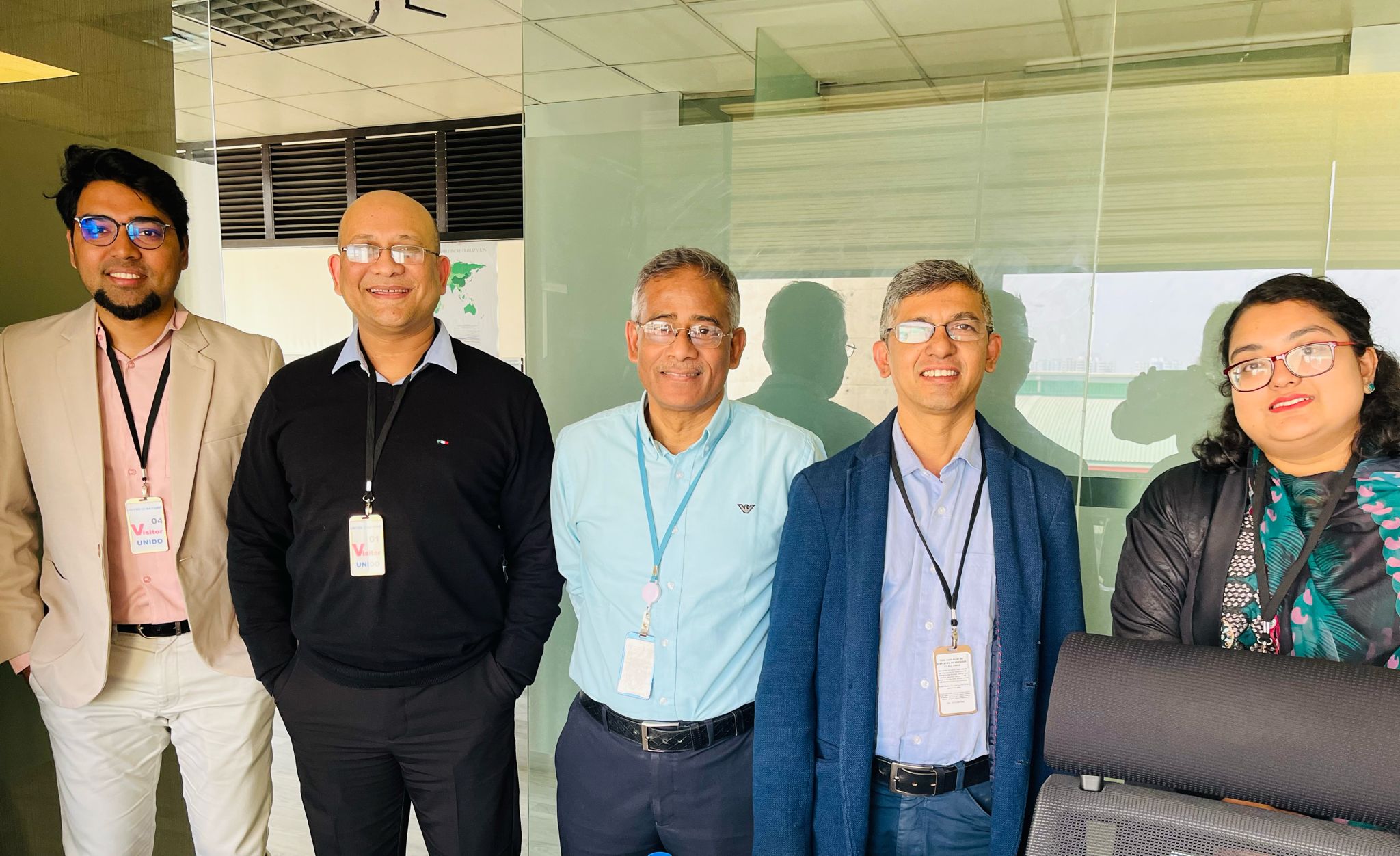CREATE Research Team Meets UNIDO with an Aim to Join Forces to Formulate Textile Circular Economy Policy Recommendations for Bangladesh.

On 13th February 2024, CREATE research team has met United Nations Industrial Development Organization (UNIDO), Dhaka, to share insights on the preliminary findings of CREATE in relation to circular economy transitions in Bangladesh’s apparel industry, funded by DANIDA.
CREATE team was led by Dr. Mohammad B. Rana, Project Leader, from Aalborg University Business School (AAUBS), Denmark, along with Dr. S.M. Shafiul Alam, Deputy Coordinator of CREATE in Bangladesh from Ahsanullah University of Science and Technology, and Mr. Md. Hasan Imam, PhD Fellow at AAUBS, Ms. Sarah Mirza, Research Assistant. They have discussed issues impeding the textile circular economy transition in Bangladesh with UNIDO Country Representative Dr. Zaki Uz Zaman. UNIDO also runs a project named SWITCH2CE with other stakeholders to support Bangladesh Government to develop coherent policies for circular economy. CREATE and UNIDO share similar objectives.
Some of the key impediments that Dr. Rana has highlighted are: the lack of circular ecosystem policies that can incentivize the actors in textile-waste value chain; political economy of the waste value chain in particular the existing market structure of pre-consumer textile waste that informal actors tend to govern (such as Gangs); the lack of cooperation between large suppliers, small holders involved in waste value chain, recyclers and brands; and the lack of low-cost finance and circular technology. Absence of traceability technology-system and incentives and the cognition of suppliers, waste-sorters, waste-handlers, recyclers make it difficult to capture authentic data on waste life cycle, workers wellbeing and due diligence.
UNIDO and CREATE team have come to an understanding that circular economy transition requires a system change; it means regulations, policies and incentive structures as well as normative and cognitive institutions of the key stakeholders need to be rearranged. Dr. Rana argues that it’s a new form of economic system, and thus old routines, habits, and thinking need to be replaced by incentive structures. We cannot expect to establish a circular economy system by some minor changes. Both apparel value chain actors, state, and global brands need to complement each other to develop a functioning circular ecosystem; and this requires rebuilding institutions with collective efforts and shared commitment.
CREATE and UNIDO wish to co-develop draft policies in collaboration with other stakeholders for the transition of apparel circular economy in Bangladesh.